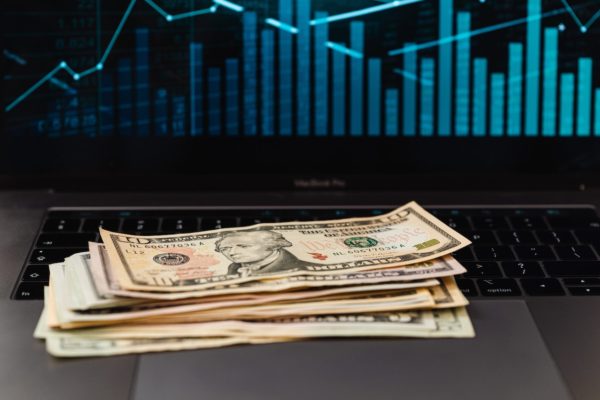You just found a lead investor for your Series C financing and looked at the pro forma cap table to find that you will own 30% of a company valued at $240 million immediately following the closing of the financing. You have more money (on paper) than you could have imagined when you first started the business, but none of it is available to you in cash.
So what do you do? You are not ready to sell your entire stake in your business (in fact, your investors won’t let you because you are too integral to the continued success of the company), but you would like to take some money off the table to alleviate some of the financial pressure that has come with taking a below-market salary the last six years.
This exact set of facts often leads founders — and, sometimes, other early-stage investors — to sell a portion of their capital stake in the company to a lead investor who is interested in financing that company. The sale of the founder stock to a new investor is often called a “secondary” and it has become an increasingly popular deal point in financings for later-stage startups.
What is a secondary?
In its simplest form, a secondary is when an existing stockholder of a private company sells all or a portion of the stock that they own in that company to another investor or third party. However, the mechanics of a secondary in a venture-backed startup can be a bit more complicated and may take many forms:
- Founders can sell their common stock to eager investors to help offset dilution to the rest of the cap table;
- Early investors can sell their preferred stock to new investors to see some liquidity or to help the company consolidate its capitalization table; or
- Employees may sell some stock that they were awarded early on to get some liquidity.
As a founder, the most natural time to take advantage of a secondary is in connection with a preferred stock financing round. Typically, in preferred stock financing, investors purchase preferred stock from the company and then the proceeds are used by the company to grow the business. If a founder does a secondary in connection with a financing round, the founder may be able to sell its common stock to incoming investors at or near the original issue price of the preferred stock being sold in the financing. In addition to providing liquidity to existing stockholders, a secondary can be a mechanism to help bridge the gap where a new lead investor would typically make a larger investment than the company currently needs to meet its growth objectives. The secondary thus allows the investor to put more capital to work and the existing stockholders to take some of their gains off of the table. Mechanically, there are a few ways that a secondary could be affected:
- The founder could sell his/her common stock to a willing investor at the agreed-upon price (immediately following this acquisition, the investor may often arrange to have the company exchange their common stock for an equal number of preferred stock being issued in the primary financing); or
- The company could sell preferred stock to the investors and then use a portion of the proceeds from the primary financing to redeem a portion of the founder’s stock.
Are Secondaries Common?
According to the Q2 2022 Carta liquidity report, the volume of secondary transactions has continued to rise quarter after quarter. During the 12-month period that ended June 2022, 74% of secondaries on Carta involved companies that had raised at least a Series C. The value of these transactions vary by industry but, on average, range from $324,000 to over $800,000 per seller. The amount of equity sold also depends heavily on the overall value of the secondary transaction, but typically ranges from 1-4% of the company’s total equity.
In fact, there are some firms with specific funds dedicated solely to secondary transactions to address liquidity desires as companies continue to stay private for longer periods of time. In 2021, 46 secondary funds raised about $45 billion between them specifically for secondary transactions, with 30% of those funds raising at least $1 billion. A few notable examples include:
- G Squared, a venture capital fund that regularly deploys up to 60% of its available capital in the secondary market.
- Delta-v Capital, a venture capital fund that offers founders a combination of growth capital and secondary liquidity.
- 137 Ventures, a growth-stage investment firm describes itself as a provider custom liquidity solutions for early stockholders and founders of technology startups.
- Top Tier Capital Partners, a venture capital firm that raised $925 million in August 2022 to deploy in secondary transactions, among other things.
- SoftBank, a large, multi-national investment firm that regularly engages in headline-making, late-stage secondary transactions.
What will investors think?
If you have established that you are a committed founder with a demonstrated ability to achieve the growth that venture capital firms and angel investors desire, your investors will likely understand or even support founders in their desire to complete a secondary transaction. Generally speaking, a small secondary should keep the founder and investors’ incentives aligned, as the founder is able to relieve some personal financial pressure but maintain sufficient equity to remain motivated to keep growing the business toward a larger liquidity event. Enabling founders to complete a secondary ensures that the founders are not too tempted by earlier liquidity events at a more modest valuation.
Timing is key as well. You want to wait until you have completed several strong financings to ensure you are not trying to liquidate too early.
Key considerations
The prevalence of secondaries in the current startup market continues to rise, and they are an incredibly useful tool for investors and founders to reward key holders, keep them engaged AND ensure that the business continues to grow towards a lucrative later-stage exit. However, there are a few things founders should consider before going through with a secondary transaction:
- Make your secondary intentions clear at the term sheet stage of the financing or you may lose some leverage, and discuss secondary options with your investors and board before adding the concept to the term sheet.
- Consider the amount you want to take off the table and think about the long- and short-term value of selling early rather than holding for a larger exit opportunity.
- Review the transaction with your accountant to ensure the tax impact is properly assessed.
- Consider the impact on the company’s eligibility to issue QSBS stock and whether the stock you are selling qualifies for QSBS treatment.
- Consult with an attorney to ensure you do not accidentally run afoul of state and federal securities laws or tender offer rules.
- Carefully review the company’s governing documents, which likely have numerous restrictions and investor protections in place that may need to be waived, including:
- Right of first refusal
- Co-sale or tag-along rights
- Transfer restrictions
- Discuss the potential impact of the sale on the company’s 409A valuation.
- Seek board approval from a majority of disinterested directors and seek stockholder approval if there are no disinterested directors on the board.
Still curious about founder secondaries, or have other questions related to legal issues for startups? Contact Kimberly Klayman at Ballard Spahr to learn more.
_
Kim’s Korner is a series of articles by Ballard Spahr’s emerging company and venture capital attorneys. The column is not legal advice. The substance of the column is derived from our experience working with founders and details many of the current critical issues facing startups.
Learn more about Ballard Spahr
This is a sponsored guest post by Ballard Spahr. Ballard Spahr is a Technical.ly Ecosystem Builder client.
Before you go...
Please consider supporting Technical.ly to keep our independent journalism strong. Unlike most business-focused media outlets, we don’t have a paywall. Instead, we count on your personal and organizational support.
3 ways to support our work:- Contribute to the Journalism Fund. Charitable giving ensures our information remains free and accessible for residents to discover workforce programs and entrepreneurship pathways. This includes philanthropic grants and individual tax-deductible donations from readers like you.
- Use our Preferred Partners. Our directory of vetted providers offers high-quality recommendations for services our readers need, and each referral supports our journalism.
- Use our services. If you need entrepreneurs and tech leaders to buy your services, are seeking technologists to hire or want more professionals to know about your ecosystem, Technical.ly has the biggest and most engaged audience in the mid-Atlantic. We help companies tell their stories and answer big questions to meet and serve our community.
Join our growing Slack community
Join 5,000 tech professionals and entrepreneurs in our community Slack today!

The person charged in the UnitedHealthcare CEO shooting had a ton of tech connections

Delaware students take a field trip to China using their tablets and ChatGPT

Northern Virginia defense contractor acquires aerospace startup in $4B deal



